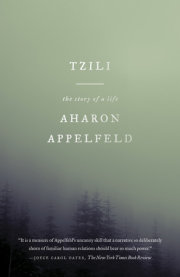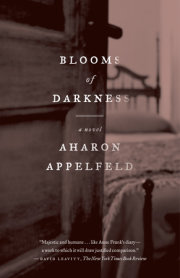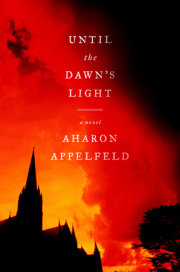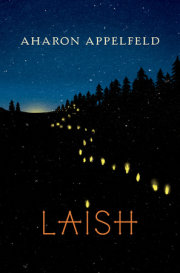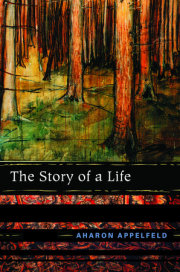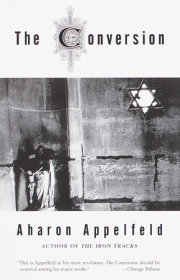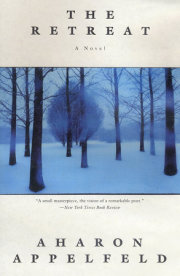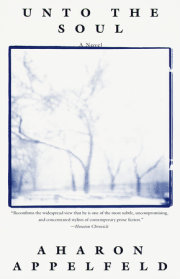A poignant, heartbreaking new work by “one of the best novelists alive” (Irving Howe)—the story of a lonely older man and his devoted young caretaker who transform each other’s lives in ways they could never have imagined.
Ernst is a gruff seventy-year-old Red Army veteran from Ukraine who landed, almost by accident, in Israel after World War II. A retired investment adviser, he lives alone (his first wife and baby daughter were killed by the Nazis; he divorced his shrewish second wife) and spends his time laboring over his unpublished novels. Irena, in her mid-thirties, is the unmarried daughter of Holocaust survivors who has been taking care of Ernst since his surgery two years earlier; she arrives every morning promptly at eight and usually leaves every afternoon at three. Quiet and shy, Irena is in awe of Ernst’s intellect. And as the months pass, Ernst comes to depend on the gentle young woman who runs his house, listens to him read from his work, and occasionally offers a spirited commentary on it.
But Ernst’s writing gives him no satisfaction, and he is haunted by his godless, Communist past. His health, already poor, begins to deteriorate even further; he becomes mired in depression and seems to lose the will to live. But this is something Irena will not allow. As she becomes an increasingly important part of his life—moving into his home, encouraging him in his work, easing his pain—Ernst not only regains his sense of self and discovers the path through which his writing can flow but he also discovers, to his amazement, that Irena is in love with him. And, even more astonishing, he realizes that he is in love with her, too.
“The questions Suddenly, Love poses are not only those of Jewish displacement, Jewish memory, and Jewish identity. Woven in are also questions of language, of the proper relationship of words to life. . . . In treating the largest of possible subjects—life, death, faith, language, identity, ethical responsibility—Appelfeld is one with Emily Dickinson’s directive, ‘Tell all the truth but tell it slant.’ Suddenly, Love is a brilliantly hybrid creature: It has the real-life detail of the traditional novel, but it also make us travel into the worlds of folk tales and magic, prayers and dreams. All this is accomplished with deftness and clarity.” —Mary Gordon, The New York Times Book Review
“Suddenly, Love has all the wisdom, compassion, restraint, and exquisite clarity we have come to expect from Appelfeld. . . . It is a powerful story of redemption through faith and love . . . the product of an extraordinarily creative imagination.” —Haaretz (Tel Aviv)
“At the end of this spare, slender novel, both Ernst’s and Irena’s lives have been transformed. It isn’t far-fetched to suggest that, in some subtle way, the reader has been changed, too.” —The Jewish Journal (Los Angeles)
“In a tradition that does not sacrifice reason but reveres it, that turns study itself into a sacred activity, does goodness still look like simplicity, or does it take other forms? These are the fascinating questions posed by Suddenly, Love.” —Tablet
“The novel’s obvious virtues include Appelfeld’s characteristically spare, stripped-down prose, rendered in Jeffrey M. Green’s elegant translation, and the narrative’s seamless interweaving of past and present. . . . In this borderland between life and death, memory and imagination, [Ernst and Irena] fashion a love story that, however unlikely, will move all but the most skeptical of readers.” —The Boston Globe
“Suddenly, Love spotlights Appelfeld’s genius for depicting a quietude of soul in a world that oscillates between rasp and ruin. In its murmured telling, it becomes a deeply interior hymn to the sustaining, ballasting brew of loyalty and affection. . . . Appelfeld has always been a master of the subtle, Chekhovian misunderstandings between individuals.” —The New Republic
“A quiet, moving, and utterly convincing story about the growing love between an aging author and his companion. . . . Appelfeld writes simply but gorgeously about important things, and the translation is particularly graceful and supple.” —Kirkus Reviews (starred review)
“A quiet, contemplative story about empathy, connection, and finding love when you least expect it. Readers of Amos Oz and A. B. Yehoshua will enjoy Appelfeld’s storytelling.” —Library Journal
“This compact novel movingly embraces the themes of love, faith, and redemption between two disparate Jewish generations. . . . Appelfeld tells the affecting tale in clean, spare prose.” —Publishers Weekly








